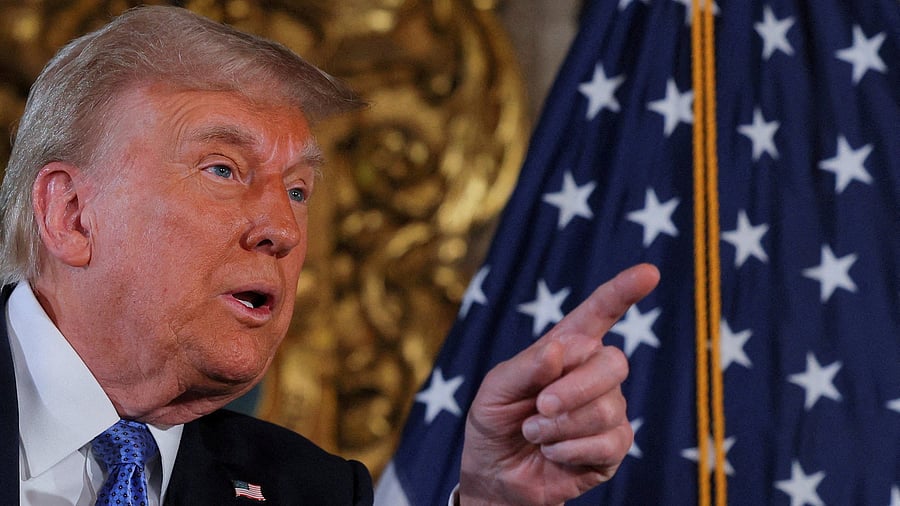
US President-elect Donald Trump
Reuters
Washington: President-elect Donald Trump denounced a bipartisan spending deal that would fund the government until mid-March, telling Republican lawmakers that it would be “suicidal” to vote for it. His intervention all but buried the agreement with government funding scheduled to lapse in less than two days.
Trump’s criticism of the legislation, delivered in a series of social media posts Wednesday, fueled a conservative revolt that had already been underway against the spending measure. His broadside left the measure on life support in the House, as he demanded major changes to the deal that threw negotiations to avoid a government shutdown into chaos.
Here’s what to know:
What happens next?
Congress has until Friday night to come up with and pass a bill that can clear the Republican-led House and the Democratic-controlled Senate and be signed by President Joe Biden before government funding lapses at 12:01 a.m. Saturday. It is unclear what form a new agreement would take.
House Speaker Mike Johnson, R-La., had planned to bring up the compromise bill under a fast-track process that requires a two-thirds majority for passage, relying on Democrats and a smaller group of Republicans to push it through. Now he must cobble together a majority some other way.
Some Republicans said Johnson was mulling shearing the legislation of a variety of unrelated measures that had been included and putting just the spending extension to a vote. But Democrats would be unlikely to support such a bill. They said Wednesday night that they were in no mood to negotiate a second deal after Trump directed Republicans to tank the one Johnson agreed to.
“House Republicans have now unilaterally decided to break a bipartisan agreement that they made,” Rep. Hakeem Jeffries, D-N.Y., the minority leader, said Wednesday evening.
And some House Republicans are unwilling to vote for catchall spending measures, meaning that Democratic support will probably be needed to get any extension through the chamber. The demands Trump laid out for the legislation also further complicated the negotiations.
What Trump wants
In his social media posts, Trump called for removing everything from the spending bill but the funding extension, characterizing the many policy add-ons as “DEMOCRAT GIVEAWAYS” even though Republicans agreed to all of them.
He also demanded that the spending agreement address the debt ceiling so that the government borrowing limit would be increased while Biden was in office, absolving him and Republicans of responsibility for doing so.
That demand was an acknowledgment of the challenges Trump and Republican leaders are likely to face trying to wrangle a thin Republican majority in Congress to approve an increase in the national debt, something that many in the party have long refused to do.
“Increasing the debt ceiling is not great but we’d rather do it on Biden’s watch,” Trump said on social media, adding that Democrats “are looking to embarrass us in June when it comes up for a Vote.” Any Republican who “would be so stupid” as to vote for a spending bill that didn’t also immediately eliminate or raise the debt ceiling, Trump said, would face a primary challenge.
What’s in the bill?
The spending legislation that had been hammered out by congressional leaders this week would extend funding of the government at current levels until the middle of March, averting a government shutdown until after Trump’s inauguration, when Republicans would also be in control of a new Congress.
But by the time the agreement had been unveiled to lawmakers, the bill was filled with a number of unrelated measures, including $100 billion in new disaster aid, $10 billion in additional economic assistance to farmers; changes in health, energy and foreign investment policies; a pay raise for members of Congress; and a provision granting a stadium site in the nation’s capital for the Washington Commanders football team.
Republican lawmakers had already begun to balk at the details of the 1,547-page spending package before Trump intervened, explicitly threatening Republicans who might support the bill with political retribution.
Elon Musk, the billionaire Trump has put in charge of a sweeping initiative to scale back government and slash spending, spent Wednesday attacking the legislation on X, his social platform, and exhorting GOP lawmakers to oppose it.